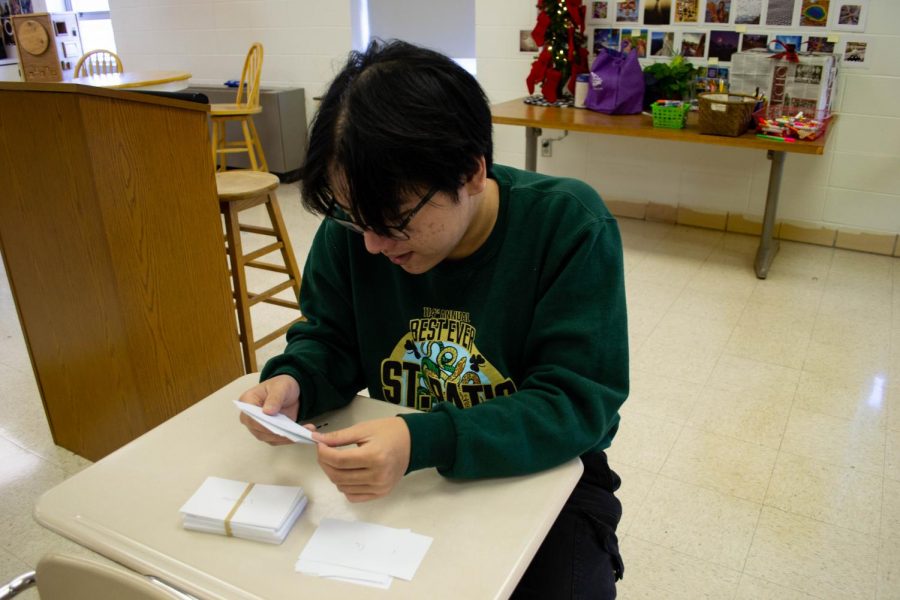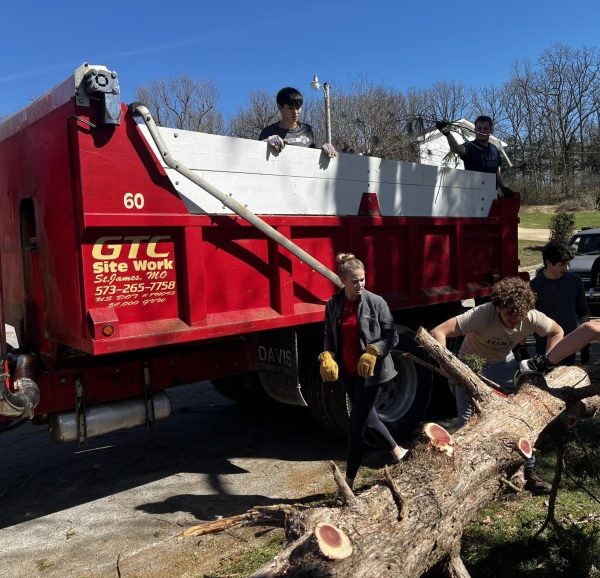Dialogue about homework highlights potential for overload
Homework has been impacting students, teachers, and even parents ever since it was “created’’ and initiated into the education system. While some argue that it’s beneficial for students, others stress the heavy potential consequences of homework and the amount that can be assigned and handed out.
Homework’s purpose is to initiate practice on certain lessons, skills, and other various topics taught in class each day. Teachers then can assess how their students are doing based on grades on the material. However, homework’s innocent ideology can sometimes be abused.
Abundances of homework not only increases the workload and stress levels of each student but also affects their approach to school and their classes. The NEA (National Education Association) and the NPTA (The National Parent Teacher Association) support the “10 Minute Rule.” This rule states that students in kindergarten should be assigned 10 minutes of homework, increasing 10 minutes for each grade up, resulting in two hours total homework for those in 12th grade.
“This year, I feel like we should be assigned more homework for the classes I have because we really haven’t had any. Homework gives you a [way of] thinking of what you are learning about not just doing your schoolwork in school,” explained sophomore Dylan Pound.
“My view on it is more of if you have extra activities out of school, homework is just a part of school. And, if it’s that big of a deal, then quit whatever you’re doing. If you’re going to do that stuff, just know that that’s a sacrifice that’s going to have to be put into play and you’re going to have to work harder in school,” said Pound.
Homework has been evolving as time moves forward. COVID-19 played a crucial role in how homework was handed out and dealt with last school year. The “hybrid” system forced half of students who were not present at the physical school to do their classes online. Fully virtual students from last year had an even bigger struggle connecting to a learning environment.
“In online, you had a tutorial, and you’d really have to read through it. And then you’d have a five question quiz on every single thing. Then as a summary, you have to type out a bunch of stuff for what you learned about,” explained Pound. “Because it was online, for me, I can’t learn as well when I read and it’s way easier to learn when there’s a teacher who can explain things and I can ask questions and get immediate responses back instead of how they had it where you’d have to message a teacher and then you’d have to wait a while for a response back.”
Students in the Newburg schools are managed differently than what RHS students are used to. Tyler Stevenson, a senior student who attends the Newberg High School, claims that their “no homework” policy may not be as great as it sounds.
“I think homework would definitely help better because you’re still thinking about it, not just in school,” claimed Stevenson.
Stevenson has mixed feelings about homework.
“I think homework definitely has its ups and downs. For some instances, it should be used and other times not so much,” said Stevenson.
Not only this, but the way having no homework affects the students under these policies was not so surprising.
“Having no homework makes people not want to do [anything] more,” he claimed. “People just don’t care anymore. They’ll just sit in class, they’ll listen to what the teacher is [saying] and then they’ll just be off doing nothing. Then they’ll wait, take the test, and fail it. They’re not paying attention,” said Stevenson.
Regardless of a school’s homework management, views on a balance will be different.
“I would say that people should have some homework. Not tons of homework, but they shouldn’t get off with no homework at all. They should have something to keep them still in that mindset,” said Stevenson.
Students are not the only ones who homework affects, however. Teachers are responsible for handing out classwork related to their daily lesson plans and for putting grades in the gradebook. They are challenged with figuring out what assignments will both be beneficial and engaging for their students.
Math teacher Don Luna, is responsible for teaching Algebra II, Honors Algebra II, and Trigonometry at RHS.
¨If it’s a college-bound course, we’re expecting the kids are going to college. Then yes, typically every class is going to have homework daily, except for on test days. But I expect somewhere between 20 and 30 minutes a day. It’s kind of the average of homework assigned in my class,¨ stated Luna.
Luna wasn’t always this way.
“I was probably more of a stickler and assigned more problems. I have slowly realized, as you go along as a teacher, you start to understand that kids do have all those other classes, and you start to not be about your own class. I understand that the kids do have seven different classes,” explained Luna.
¨If you’re actively working on your homework [and] you have more than 20 to 30 minutes, I want to know about it so then I can change it for the next year and I can reduce the number of problems,¨ said Luna.
COVID-19’s affect on the teacher and student relationship put a definite toll on classwork.
“As we moved through last year where we started the hybrid setup, we absolutely had to tailor our assignments just differently. They almost had more homework at that time it seemed like. With the way we had it last year, I would teach two lessons because I wouldn’t see [students] the next day, so I would teach them enough to where they could do it that evening and the next.”
Most schools cannot get rid of homework entirely whether students like it or not. It’s a staple in education that has benefits. The problem is figuring out a medium that can suit both those who assign and grade it and those who sits down to do it.
“I would trust that the teachers at Rolla are professional enough to know their students and be able to assign the right amount of homework,” explained Luna. “If you ask any student, they will always say they have too much homework, but I feel like if students use their time wisely, we as a school probably are good with what we assign.”
Homework will always be controversial. There will never be a perfect solution that schools and the education system as a whole can follow. Research conducted at Stanford University suggested that any homework past a cumulative of two hours was actually counterproductive. Some parents or other individuals may claim that doing more homework makes the student “smarter.”
In addition, Stanford researchers surveyed more than 4,300 students in upper middle-class California communities. They chose 10-high performing high schools and interviewed them about homework. After asking each student if they had experienced any physical symptoms of stress, more than 80 percent of students claimed they had at least one stress-related symptom while 44 percent said they had up to three or more physical symptoms, with less than 1 percent saying homework was not a factor in their stress.
The higher the demand for our students’ academic accomplishments, the higher the stress and workload that will come with it.
Any school has the potential to create a culture of homework imbalance. The last two years have demonstrated a real potential for increased workload for both students and teachers.
The reality is that every single student is different. Some learn faster than others, some are more busy than others. A constant communication with educators can improve the quality of work and how it is assigned.
Luna notes an appreciation for student engagement, specifically when students come to him asking for resources from a previous day’s lesson.
“I love that because that means they looked at the calendar. They know that there’s a worksheet, and they said, ‘Hey, can I have that worksheet?” stated Luna.
To Luna, this participation shows more to him than a question of “What did we do yesterday?” Pound, who did not have access to classroom teachers last year, echoes the importance of speaking up.
“Pay more attention in school, or ask teachers more questions on things when you get your assignments [like], ‘How do you do this?’ Or bring your notes home, so you can have a reference,” explained Pound.

My name is Connor. I am a senior staff writer, and this is my first year writing for echo. Other than writing, I like to play instruments, play basketball,...

Hey, I’m Mallory, the webmaster of ECHO. This is my second year on staff, and I’m a senior. I run cross country and track, participate in band, stuco,...







